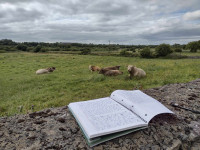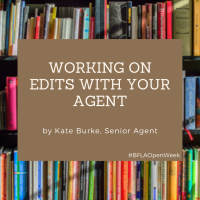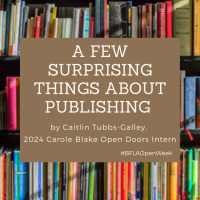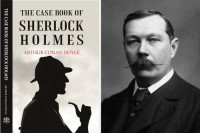
Best in Rural Writing contest 2024 opens for submissions
agriland.ie – Monday July 15, 2024

Now in its second year, the Best in Rural Writing contest is accepting fiction and non fiction entries under 6,000 words.
Those interested in taking part have until September 30, 2024 to submit their work.
The contest will be judged by Dr. Chea Parton, founder of ‘Literary in Place’, which advocates for rural literacy by providing educational resources on writing and reading, as well as various initiatives for rural teens.
The first place entry in the best in rural writing contest will receive $500, while the runner-up will be awarded $200.

Stories written with AI assistance found to be more creative, better written and more enjoyable
techxplore.com – Sunday July 14, 2024

A study published in the journal Science Advances finds that AI enhances creativity by boosting the novelty of story ideas as well as the 'usefulness' of stories—their ability to engage the target audience and potential for publication. The paper is titled "Generative AI enhances individual creativity but reduces the collective diversity of novel content."
It finds that AI "professionalizes" stories, making them more enjoyable, more likely to have plot twists, better written and less boring.
In a study in which 300 participants were tasked with writing a short, eight-sentence 'micro story' for a target audience of young adults, researchers found that AI made those deemed less creative produce work that was up to 26.6% better written and 15.2% less boring.
However, AI was not judged to enhance the work produced by more creative writers.

Why so few men take up the pen
thecritic.co.uk – Sunday July 14, 2024

With publishing now such a female-dominated industry, it’s no surprise that there are so few men writing fiction
I’ve just finished a very unusual book: Caledonian Road by Andrew O’Hagan. Its themes, characters and the author’s style of writing are all exceptionally good but that’s not why this book is unusual. It’s more because it’s a new and critically acclaimed work of literary fiction written by a man.
If you’ve seen the inside of any bookshop in the last few years, you’ll know how rare this has become. The vast majority of new fiction and its most praised and promoted authors are female. And yet the principal reason for this is seldom discussed.
So let’s discuss it, shall we? Let’s bring the elephant into the room. The publishing industry is suffering from a damaging gender imbalance. According to a recent UK publishers’ survey, 83 per cent of marketing, 92 per cent of publicity and 78 per cent of editorial staff in Britain’s publishing industry are female. Taking an average of those three figures suggests an industry whose employees are 84 per cent female.

Audible Introduces New Royalty Model For Authors and Publishers
goodereader.com – Sunday July 14, 2024

Amazon announced in a blog post it has come up with a new royalty model that will enable creators to monetize more varied content types. Amazon said it devised the new royalty model after engaging extensively with the authors and publishers and taking into account their feedback on this. The company also said the new model will mean better business opportunities for the authors and publishers as more titles qualify for generating royalty than ever before. This applies to even those titles that are part of Amazon’s all-you-can-listen plan, Audible Plus.
That is not all as the new business model aims to offer enhanced insights to publishers and creators. Participants opting into this model will receive monthly statements and royalty payments that are aimed to facilitate prompt decision-making. Additionally, they will gain further insights into how listener engagement affects their earnings.

Writing Suspenseful Scenes: Techniques for Keeping Readers on the Edge of Their Seats
rollingstone.com – Saturday July 13, 2024

IN THE REALM of literature, few elements captivate readers quite like a masterfully crafted suspenseful scene. It’s the literary equivalent of a roller coaster ride — heart-pounding, palm-sweating and utterly addictive. But what techniques do authors employ to create these nail-biting moments that keep readers glued to the page? Let’s delve into the world of literary suspense and uncover the secrets behind keeping readers on the edge of their seats.
At its core, suspense is about the art of withholding information. Like a skilled magician, authors must constantly misdirect, hint and tease. The real magic happens in the reader’s mind as they attempt to piece together the puzzle. Pacing plays a crucial role in this dance between revelation and concealment. The key is to provide just enough information to keep readers hooked, but not so much that they can predict what’s coming next.
One technique that many suspense writers swear by is the slow burn. This involves gradually increasing tension throughout a scene or chapter, ratcheting up the stakes bit by bit until the reader is practically squirming with anticipation. Think of it as slowly turning up the heat on a pot of water. You start with a simmer, then gradually increase the temperature. By the time you reach the boiling point, the reader is fully invested and desperate to know what happens next.

Kemi Ogunsanwo launches Seventh Agency after leaving The Good Literary Agency
thebookseller.com – Saturday July 13, 2024

Kemi Ogunsanwo has launched her own agency after leaving The Good Literary Agency (TGLA), where she worked as a senior agent.
Ogunsanwo’s new venture is London-based Seventh Agency that is dedicated to empowering writers who "inspire, enlighten and empower readers".
Ogunsanwo said: "Seventh Agency was born out of a need to address what still feels like a huge gap in the market, both in the UK and overseas. I hope Seventh Agency helps contribute to the shift towards a more progressive and nuanced view of the stories told by writers from different cultural and racial backgrounds; both those that explore the impact of our historical challenges and those that allow us to benefit from the fantasy, beauty, love, and joy that storytelling should afford us. I’m so excited for this next chapter!"

BFLA Open Week: Working on Edits with Your Agent
blakefriedmann.co.uk – Thursday July 11, 2024

Every agent – and agency – is different and, ultimately, who you sign with has to be someone you click on a personal and professional level, and who you think will do the best by your writing and your career. Some agents work very closely editorially with clients and some don’t, but I’m not here to judge anyone! All I can say is that, as a former editor with a decade of experience working for several publishers, I do a lot of editorial work with my clients, particularly with debut writers, but this process can continue beyond that. This means working closely with them on several drafts of their novels before submitting them to publishers, helping them to shape outlines for future projects as well as brainstorming titles and pitch lines, and these are processes I really enjoy!

BFLA Open Week: A Few Surprising Things About Publishing
blakefriedmann.co.uk – Tuesday July 9, 2024

On my first day interning at Blake Friedmann, I realised just how much I didn’t know about the publishing industry. Over just two weeks, I learnt so much. It was life-changing – to my career in publishing, and to my confidence as a young professional. The Carole Blake Open Doors Project sets a major example for the rest of the industry as does Blake Friedmann as an agency themselves. The internship was proactive, inclusive, exciting, and impressively tailored to my interests. I could probably talk about it all day, but instead I’d like to share a few things I learnt that may be helpful to writers and aspiring publishing professionals alike.

New Literary Agent Listing: Kendall Berdinsky
firstwriter.com – Monday July 8, 2024

Interested in seeing upmarket romance, book club fiction, psychological thrillers, and narrative nonfiction. Overall, she is looking for work from underrepresented communities with new stories to tell.

"It Shouldn't Be Printed At All. It Should Be Burnt" — 23 Books Writers Regret Writing
buzzfeed.com – Sunday July 7, 2024

We've recently written about inventors who regretted their inventions, as well as directors who cringed at (and even disowned) their own movies. So, we thought we'd share some examples of authors who grew to regret their own titles, too. Here are 23 examples:
1. Arthur Conan Doyle grew to hate Sherlock Holmes, eventually killing his beloved character off.
Historian Lucy Worsley told The Guardian that Sherlock eventually just became a cash cow for Doyle, who also wrote far-less-read historical novels. He killed off Holmes when he made him enough money, but brought him back ten years later for over a million dollars — "he would have hated the fact that today, 93 years after his death, his historical novels lie unread, while his ‘cheap’ – but beloved – detective lives forever on our screens," Worsley says.
Get the free newsletter | Submit a news item or article | Get Writers' News for your website





